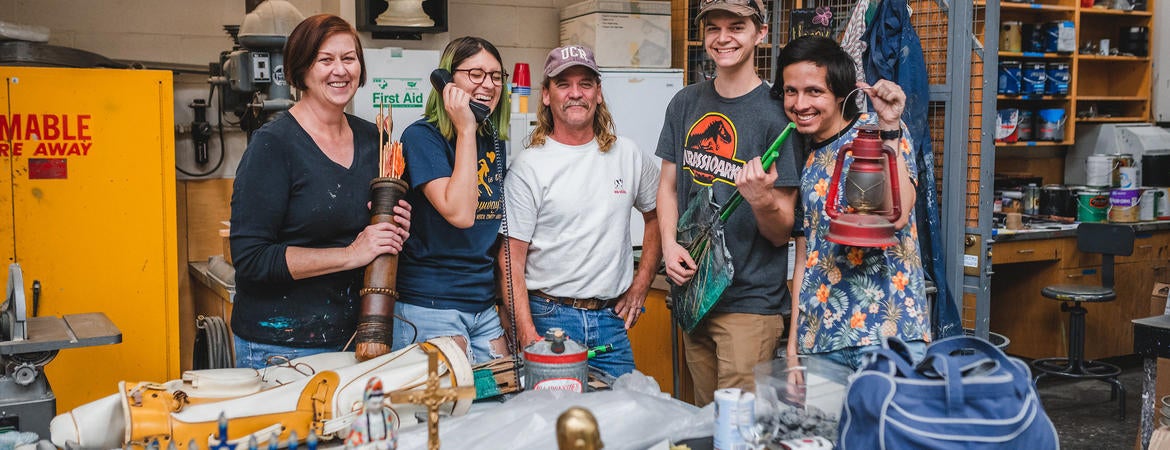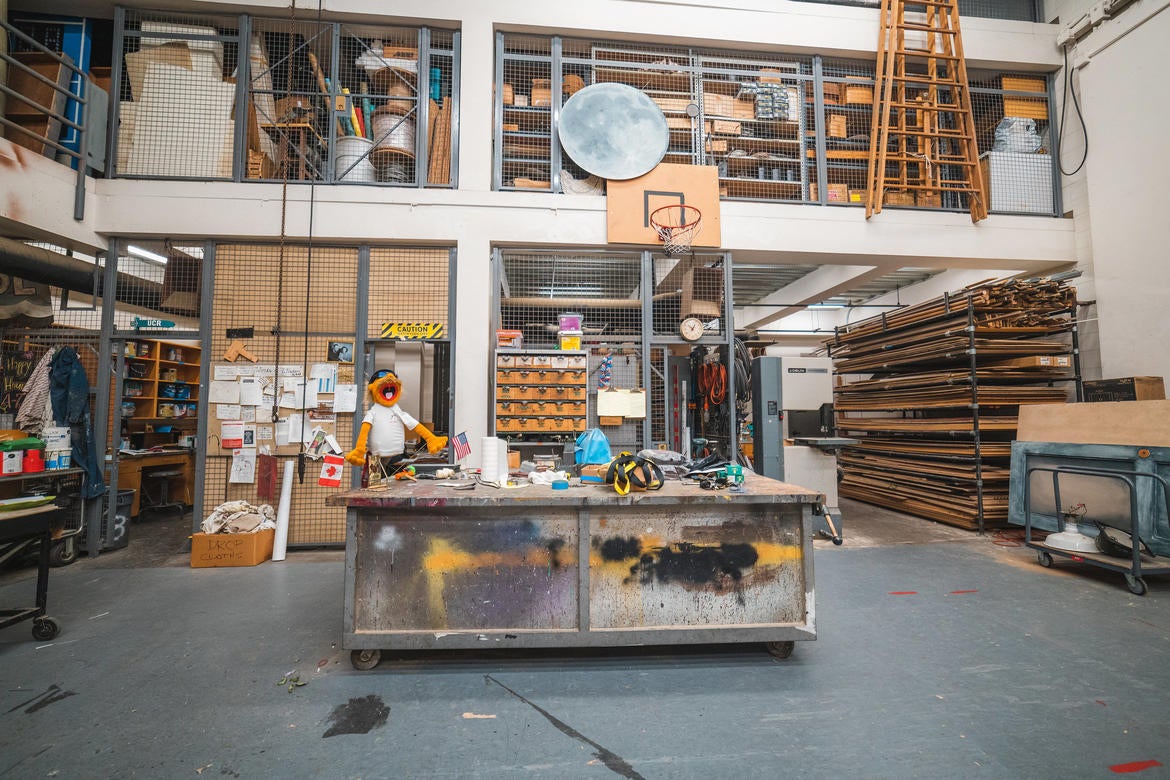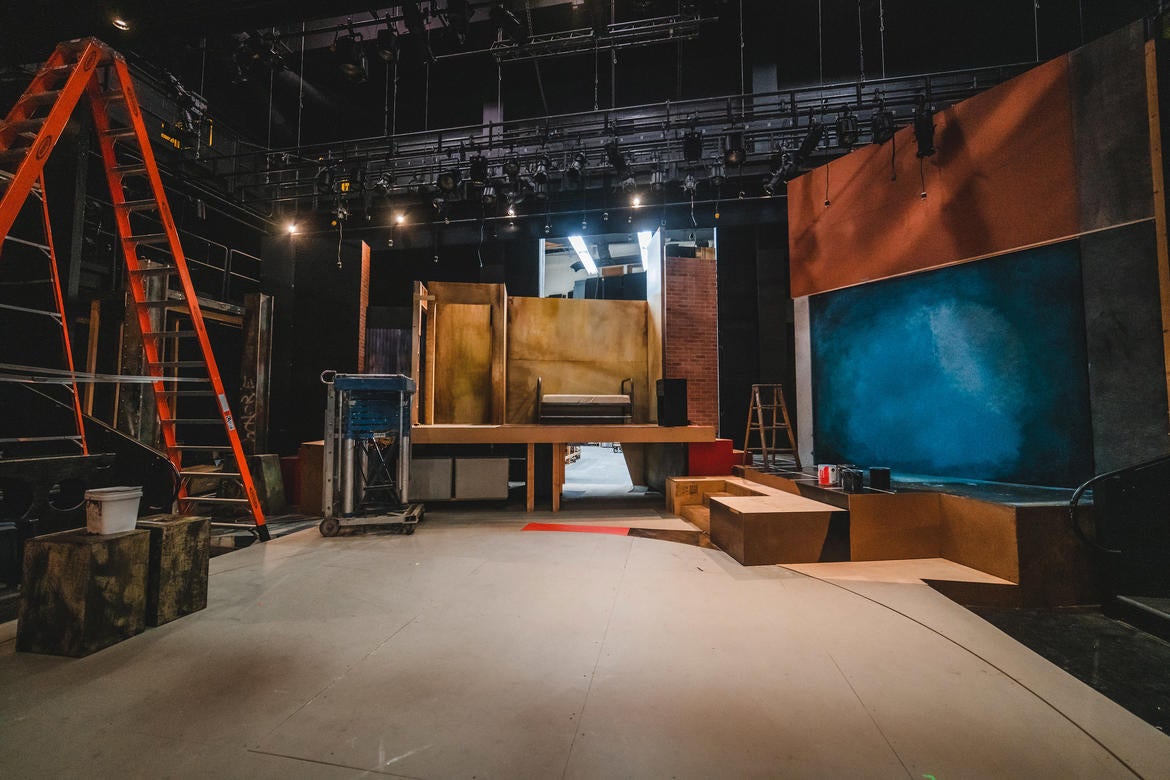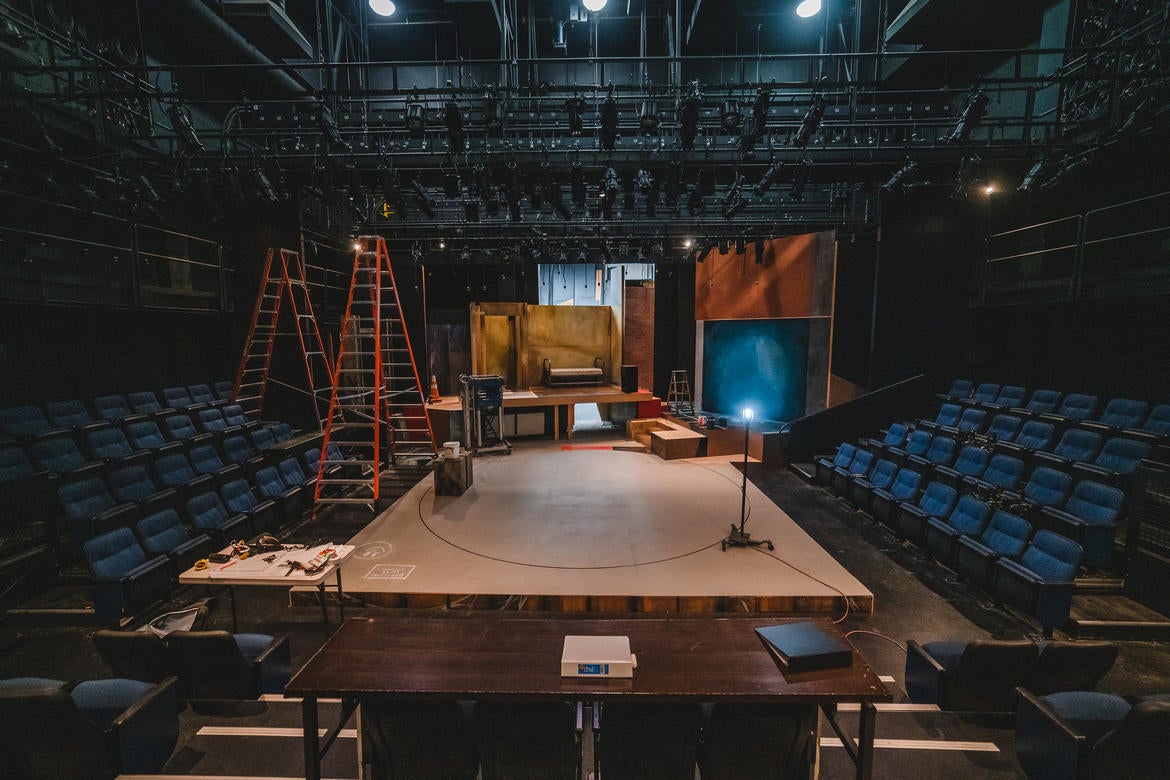College of Humanities, Arts, and Social Sciences

Behind every UCR performance is an unseen team of people helping the show live up to its full potential, including set and prop designers found in the Scene Shop of the College of Humanities, Arts and Social Sciences.
The Scene Shop constructs elaborate scenery and props for performances and film productions, and handles all of the backstage production for the Department of Theatre, Film and Digital Production.
Its team consists mostly of UCR student workers, led by Technical Director Alan Call and Scenic Artist and Property Artisan Kerry Jones.
“At the end of the day, people go home and turn on a movie or see a play,” Alan said. “We’re here to show people how to make that movie, how to make that play happen so others can go to the theatre to relax and enjoy as they watch it. We are here for entertainment, anything is possible if you think about it in the proper way.”
The CHASS Scene Shop is a multi-room space within the Arts building that houses power tools, art supplies and a full stage. Previously housed in the University Theater complex, the scene shop, initially established in 1963, took up it’s home in the Arts Building in 2001. Although student workers within the shop are primarily theater majors, any major is welcome to get involved with the team, a compilation of painters, sculptors, electricians, and prop artisans.
“I really like working in here,” said third-year production and design student Liz Flores. “We have a good group of people that we work with, so coming in to work is like coming in to hang out with friends while getting stuff done. It doesn’t feel like your typical job. I enjoy being here and I think that’s what makes it a good experience. It’s a really good learning environment, and it’s definitely very encouraging.”
Set and prop concept design begins 5-6 months before the play or film goes live, typically beginning with a discussion between the director and scenic designer to compile a general idea for the layout and structure of the scenery. The physical creation of the useable props and scenes begins roughly six weeks prior to opening night, once the finalized design is presented to the team. A typical show contains many different scenes, all of which must be created by those in the shop as part of the complete set for the production.
“It’s always different,” said graduate student and scene shop foreman Josh Stephenson. Every day is a new adventure, and everyone around is so much fun. We always make every day fun and find new ways to enjoy what we do. Because every show is different, there are always new challenges, so it’s fun working through those challenges with everyone.”
Each production requires something new, but often times some of the previous props or sets are repurposed to fit the needs of the current production. The shop houses numerous framed wooden panels of varying sizes, called flats, that can be reused and attached in different ways to minimize waste while fulfilling the needs of the show.
“Every play is different and every film is different, so every set is different,” Alan said. “I’ve built houses in here, but my houses only have to last for six weeks and then I take them down and we go on to the next one. It’s a revolving door, because every production is different.”
The shop has constructed sets and props of all shapes and sizes, including two-story houses, swimming pools, vehicles, small planes, and even forests, all constructed out of wood, metal, fabric and foam. The day after the final performance, known as “Strike,” the team comes in and within 24 hours tears down and stores the sets and props from the finished production.
Sets for the upcoming production Marisol, a play by José Rivera, have been in the works since January, and are set to be unveiled on opening night, Thursday, May 9 at 8pm in Arts 113. Marisol will have seven performances, May 9-18. For more information about Marisol and other upcoming productions, visit theatre.ucr.edu.


